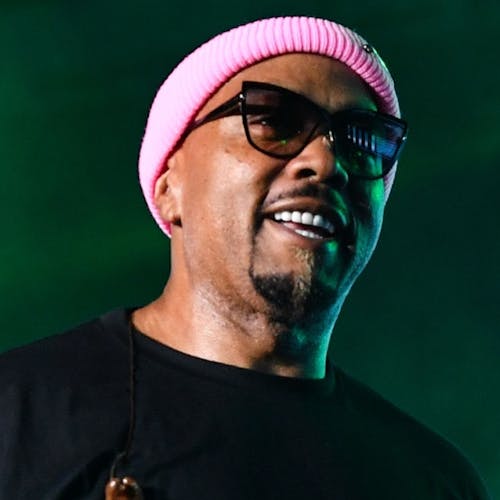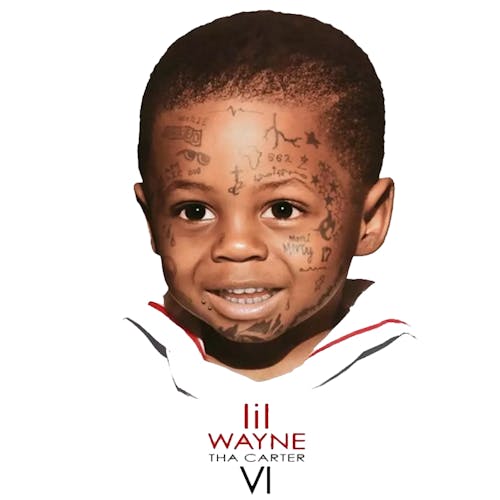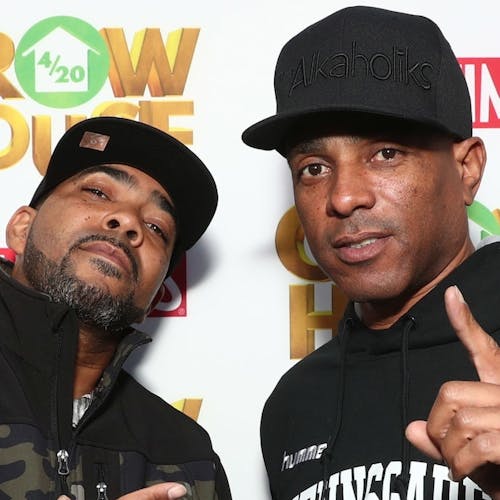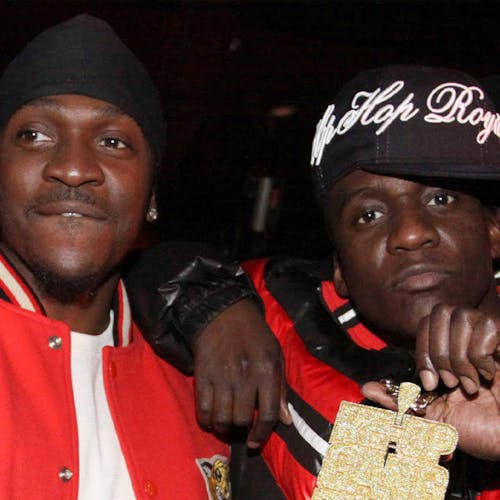
The Life and Career of Ol’ Dirty Bastard
The Life and Career of Ol’ Dirty Bastard
Published Tue, March 5, 2024 at 3:00 AM EST
How Did Ol Dirty Bastard Die?
The life and career of Ol’ Dirty Bastard is the story of a uniquely kinetic talent; one who stood out even amongst his iconic Hip-Hop crew. But it’s impossible to think about ODB and not linger on just how much more we could’ve seen the man do, how much more he could have created. The wild card of the Wu-Tang Clan was witty and unpredictable, a shining star that liked it raw and was always himself. But his untimely death of an accidental drug overdose in 2004 at the age of 35 served as a dark end to a life that never colored within the margins. And his last days wound up serving as a reminder that fame and status can dreadfully harm those who haven’t beaten their demons.
A Stable Beginning
Young Russell Tyrone Jones, the real name of Big Baby Jesus (aka ODB), came from a stable, middle-class background.
“He comes from a family where his mother and father were married, lived together, had children,” RZA explained in 2020. “He saw family life, and I think when you see it, you look forward to having it again for yourself. Most of the Wu are single mother kids. Dirty and GZA are not. But I think for Dirty, he fell in love early with his wife. And, it wasn’t easy for him to go visit her. You had to walk through the jungle. There were always dudes out there like, “Yo. You ain’t from this building.” It was a war for him to be with her. He knew what was destined for him. They got married, had children, and had that foundation.”
By the time Jones was rapping with his cousin Robert “Rakeem” Diggs (RZA) and Gary Grice (GZA), it was obvious that he had the talent and charisma to go far. The influence of his parents’ old soul records found their way into the young rapper’s flow, as he developed an off-kilter, singsongy style that would become his trademark. By the time he’d reconnected with his cousins to form a nine-man group called Wu-Tang Clan, the Brooklyn rapper was ready for his close-up.
Other members, mostly from Staten Island, included RZA, GZA, Method Man, Raekwon, Ghostface Killah, Inspectah Deck, U-God, and Masta Killa.
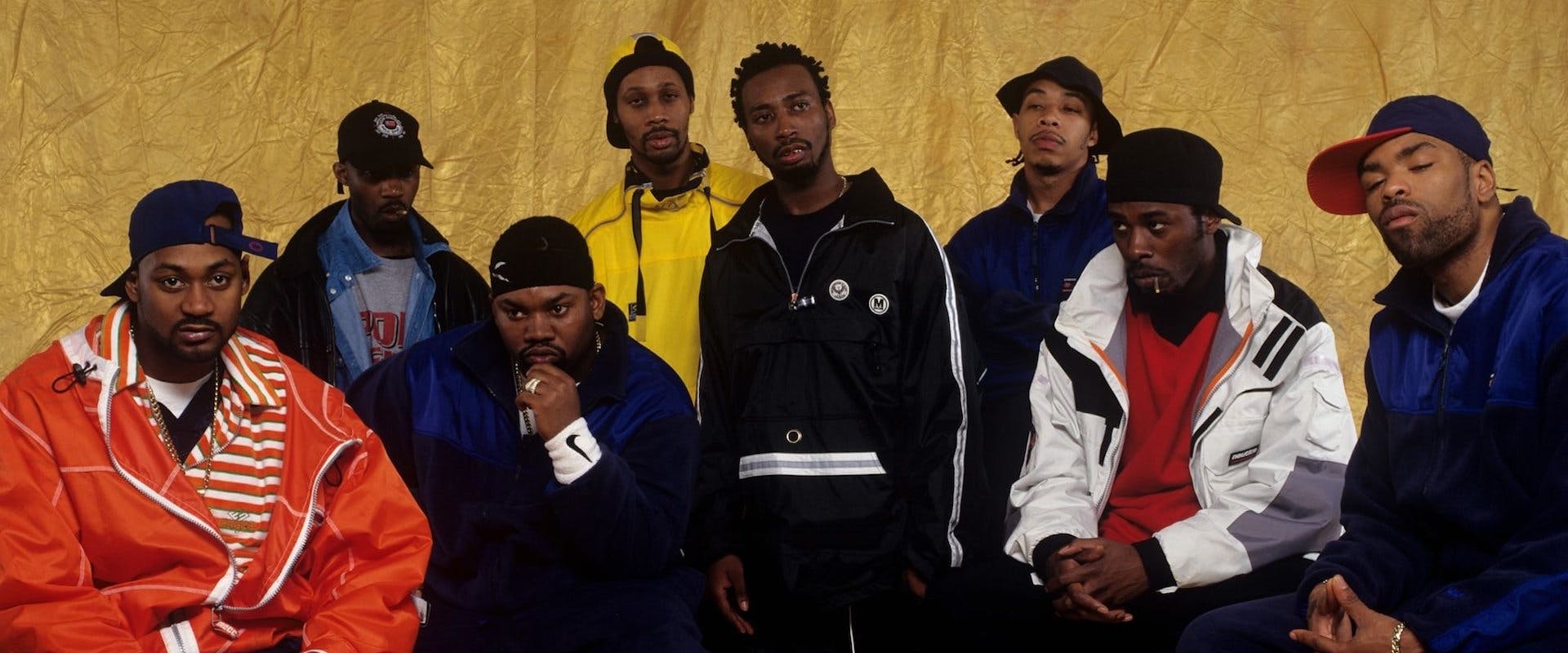

Becoming ODB
After the Clan released their debut album Enter The Wu-Tang: 36 Chambers, Ol’ Dirty Bastard was already becoming notorious–and not just for his distinctly bizarre rhyme style. He was arrested, not for the first time, in 1993 and charged with attempted robbery; and he was shot in 1994. He gained widespread notoriety a year later: both for the release of his hit debut solo album Return To the 36 Chambers; and for his infamous appearance on MTV, when he went to pick up food stamps in a limousine.
For a while, it all just seemed to be par for the course for one of the rap game’s most famous wild men. But his life got more and more out of control: he was shot in 1997, and sent to prison for failing to pay child support that same year. ODB was prominently featured on Wu-Tang Clan’s highly-anticipated sophomore album Wu-Tang Forever, but was unavailable for the album’s music videos, due to his incarceration. Upon his release, he delivered one of the most memorable moments in Grammy Awards history when he took the awards show stage in 1998 to express his disdain after Puff Daddy took home Best Rap Album over …Forever.
The arrests kept coming. He was charged with assault after an incident with a security guard at the House Of Blues in Los Angeles. That was September 1998; and months later, he was arrested for illegally wearing a bulletproof vest. And just two months after that, he was arrested for crack possession in New York City. He was sentenced to three years probation and a stint in rehab; but he ran away from the treatment center just one month shy of completing his sentence. Fans and commentators seemed to revel in playing “Spot Ol’ Dirty Bastard” as the rap star-turned-fugitive popped up at shows and events while on the lam. The situation culminated with ODB onstage alongside his Wu-Tang Clan compadres at a show at Manhattan's Hammerstein Ballroom. He was taken into custody and sentenced to four years in prison.
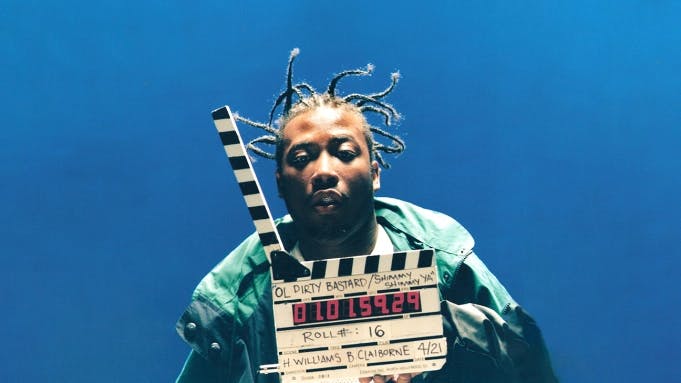

DROP YOUR EMAIL
TO STAY IN THE KNOW
Enabling The Dysfunction
Looking back at those years, it’s easy to see how Ol’ Dirty Bastard’s image and environment helped enable his self-destructive tendencies. The world laughed, his rap group continued, and everyone just believed this was just Dirty being Dirty. The cost of working with his kind of genius.
"It was some of the reason I signed him," former Elektra Records A&R Dante Ross said in 2002 of ODB's troubled personal life. "His dysfunction was the attraction, to an extent. You don't come across a character like that too often. He was a calamity waiting to happen. That's kind of the beauty of it."
Throughout it all, he’d still managed to deliver strong music, even though his appearances on Wu albums were becoming more diminished. He’d released the hit “Got Your Money” in 1999, and the single’s parent album, Nigga Please, went gold that same year. But now, as he sat in prison, his label Elektra Records began releasing stopgap projects of meager quality. A poorly-conceived “Greatest Hits” and ODB’s third album, 2002’s The Trials and Tribulations of Russell Jones were merely contract-fillers, and did little to re-establish his musical career.
By the time of his prison release in 2003, the musical landscape had changed drastically. Russell Jones emerged from his incarceration significantly affected by all that he’d been through. A frazzled and low-key ODB (suddenly rechristened Dirt McGirt) walked out of prison into a full-blown media circus; complete with Dame Dash ready to sign the beleaguered rapper to Dash’s Roc-A-Fella Records label, pop megastar Mariah Carey on-hand to pick him up as he left the facility; and cameras pointing in his face through the entire ordeal. The entire farce was captured via VH1’s reality show cameras, with a new album promised.
"Yeah, yeah, yeah, I'm happy to be here," Dirty said at the time. "I didn't think I was gonna touch no more microphones. ... I'm looking forward to a future with Roc-A-Fella."
Why Did Ol’ Dirty Bastard Die?
But looking back, everyone seemed to see how exploitative and unhealthy the entire debacle was for Jones.
“No, they never treated him the way he’s supposed to be treated,” RZA would say years later about ODB’s time with Roc-A-Fella. “Even a diamond, when it comes out of the ground, it’s just a rock to be polished, and then cleaned and cut right. When he came out the system they were just like, ‘No, let’s just move him here.’ When you watch it, for me it was hard. It was a joy to see my brother. And they got stuff in there that none of us had ever seen in the film, because they had a camera following him.”
Dirty spent the next few months working on the album, and collaborating with everyone from Jon B. to Insane Clown Posse. But in November 2004, while at a recording studio in Manhattan, Ol’ Dirty Bastard collapsed and died. He’d complained of chest pains before the session. His official cause of death was heart attack via overdose of cocaine and the prescription painkiller Tramadol.” He was two days shy of his 36th birthday.
It doesn’t seem like we’ve learned much of anything in the wake of Ol’ Dirty Bastard’s passing. It’s been nearly 20 years, and now we watch celebs’ dysfunction play out across social media. We ingest reality show dysfunction like it has no effect. But we have to reckon with our appetite for self-destruction. Ol’ Dirty Bastard’s life was filled with red flags. Maybe we were just too busy laughing to pay attention to them.
Young Dirty Bastard
Wu-Tang made headlines when they became the first Hip-Hop group to land a Las Vegas residency. But it begged the question: how would they handle the absence of ODB? Enter, Young Dirty Bastard, his son, who has stepped into his father's shoes during performances.
When speaking with the New York Post, he commented, "“Some people are in the moment and can’t really grasp it. It really sinks in like ten years later. RZA, Method Man, Raekwon, Inspectah Deck, everybody,” he said. “All of us are still together and that’s a beautiful thing.”
